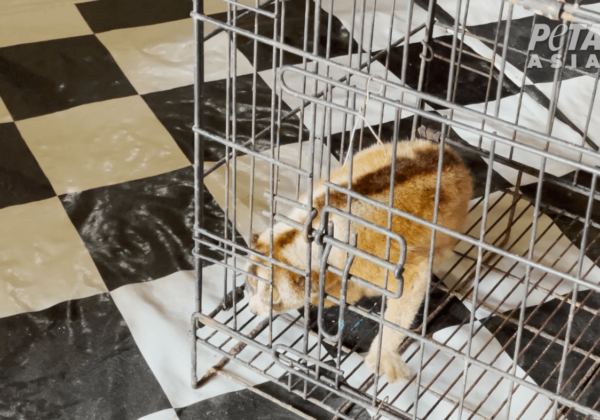A Lasting Memory: Mali Will Never Forget
If it is true that elephants never forget, then a concrete floor, a wide empty space, and a life of deprivation will be burned into Mali’s memory for as long as she lives.
For almost 40 years, she has been living in captivity in the Manila Zoo. Her day-to-day life consists of standing on concrete all alone while watching people smile, shout, and throw food at her. She deserves more than this isolated life locked away in a zoo. She doesn’t know what it’s like to stand on grass or soil, nor does she know what it feels like to run free on acres of land, with the wind gently caressing her ears. In the wild, elephants walk up to 50 kilometers every day. But the area of the Manila Zoo is 0.055 square kilometers, and Mali’s cell is only a fraction of this size. She can take only a few small steps in her tiny pen. The other elephants at the zoo died in 1979, so Mali has been living by herself for more than 35 years.
The Manila Zoo is a prison for Mali and offers her no stimulation. I question those who believe that she is content in Manila, when she doesn’t even know what happiness is. We owe it to her and all the other animals held captive there not to support such a cruel institution, where animals are enslaved for entertainment.

Artwork by Ria Forbes
I like to picture Mali in an elephant sanctuary with flowers on her head, her gray skin bathed in morning sunlight and her eyes illuminated by the warmth of being with others of her own kind. I like this vision of her future a lot better than the idea that she’ll simply remain in a barren den and die well before her time. Most captive elephants die by the age of 40, whereas elephants in the wild and in sanctuaries often live up to 70 years.
We can’t atone for the lost years of Mali’s life, but we can definitely help provide her with better circumstances and positive memories that will last for the rest of her life if she is transferred to an elephant sanctuary. Free Mali.
Written by former PETA Asia intern Ria Forbes









